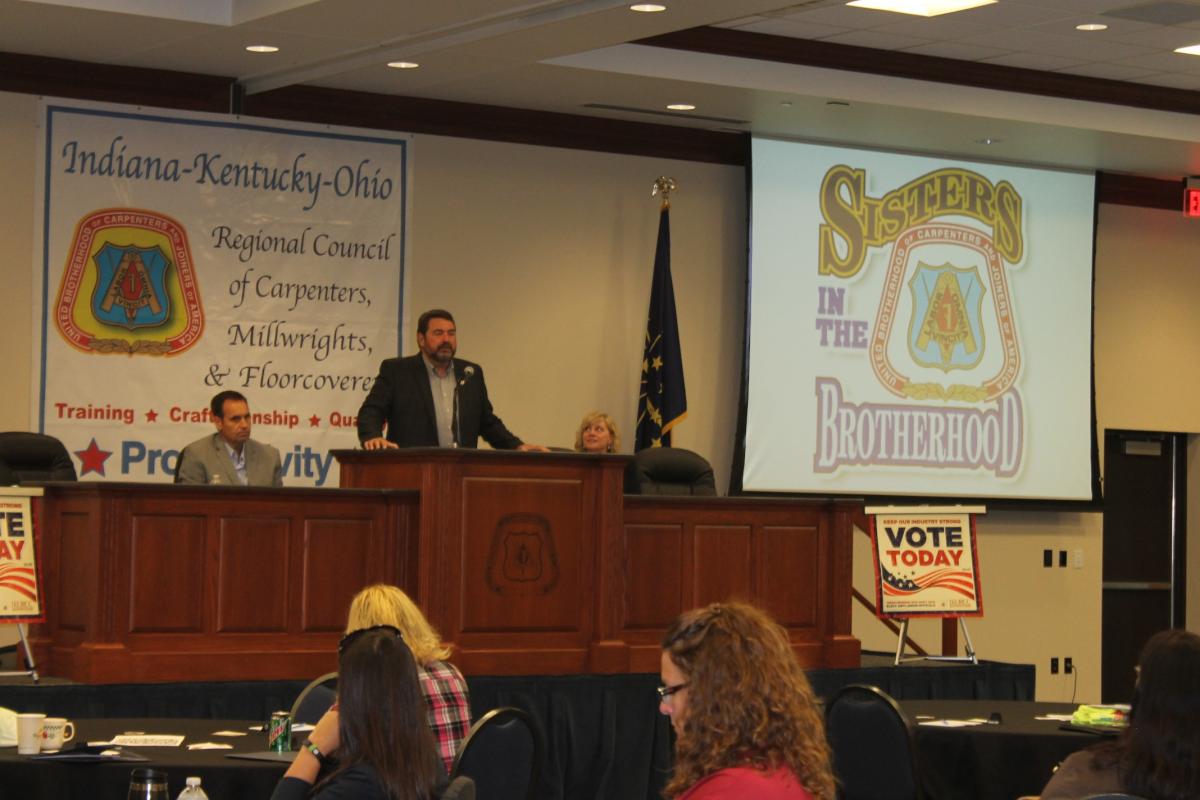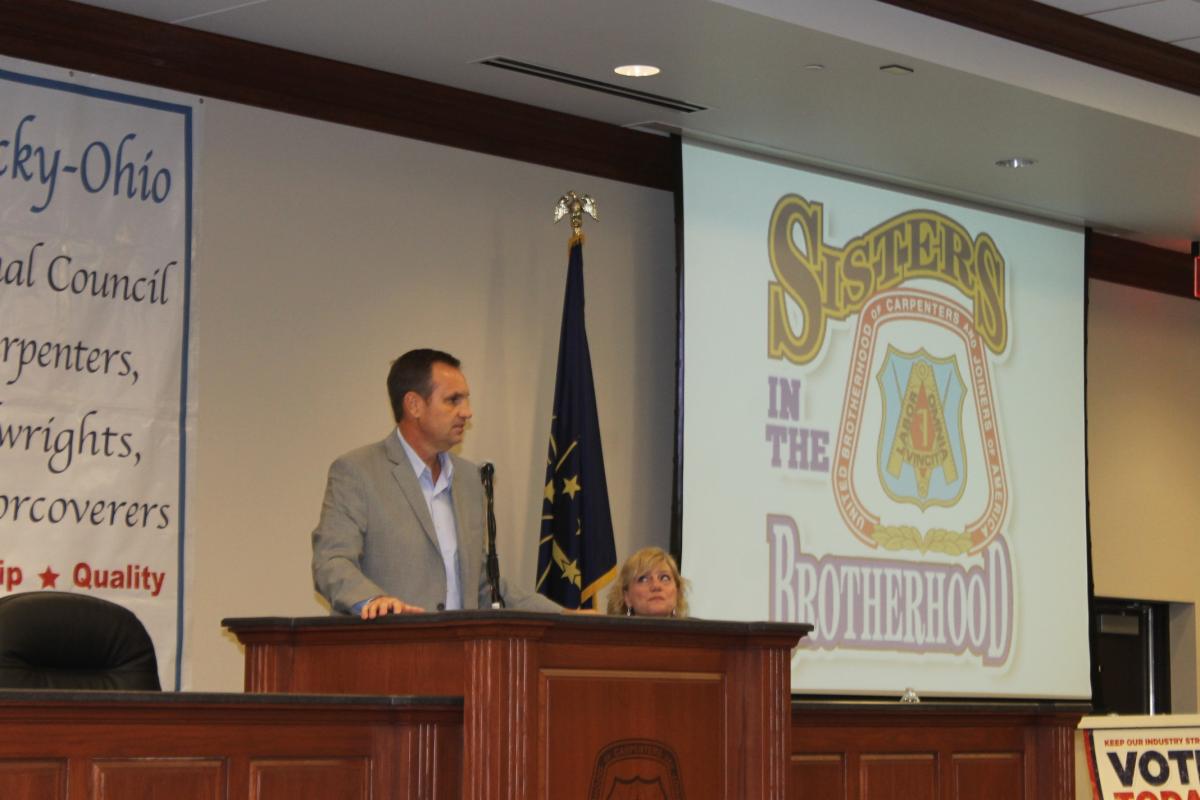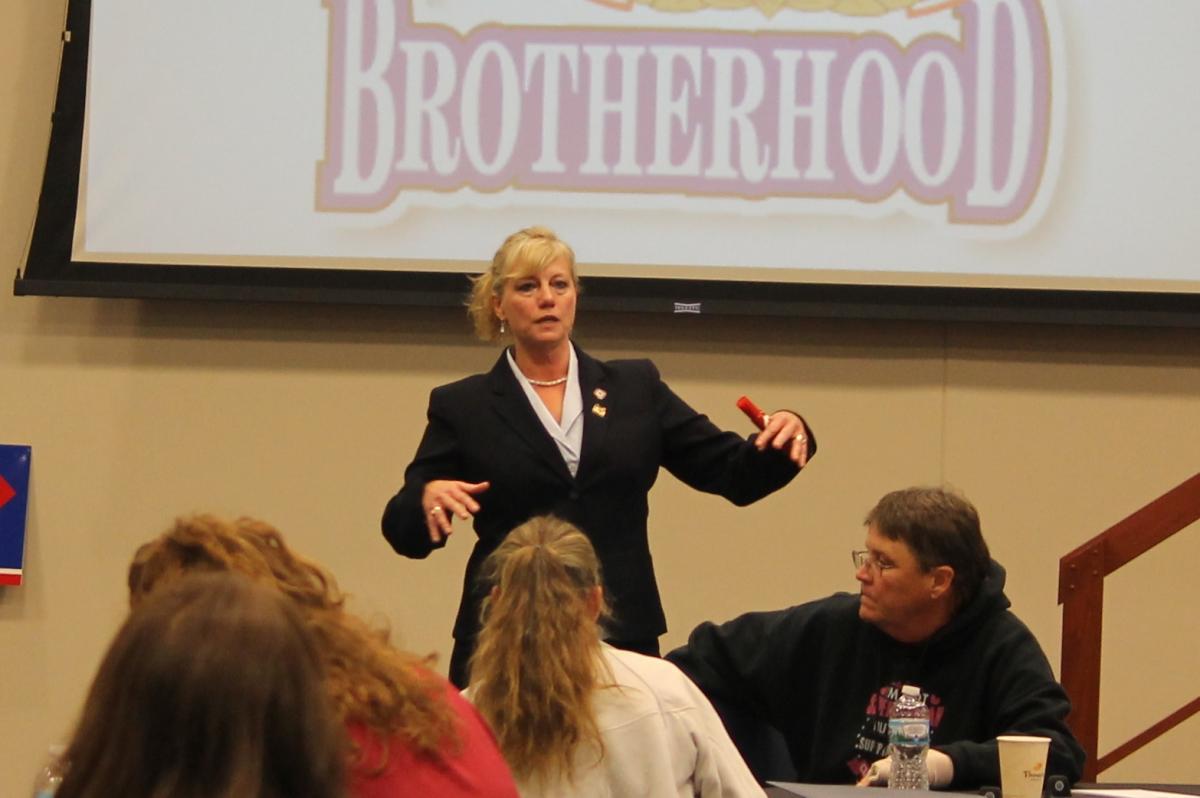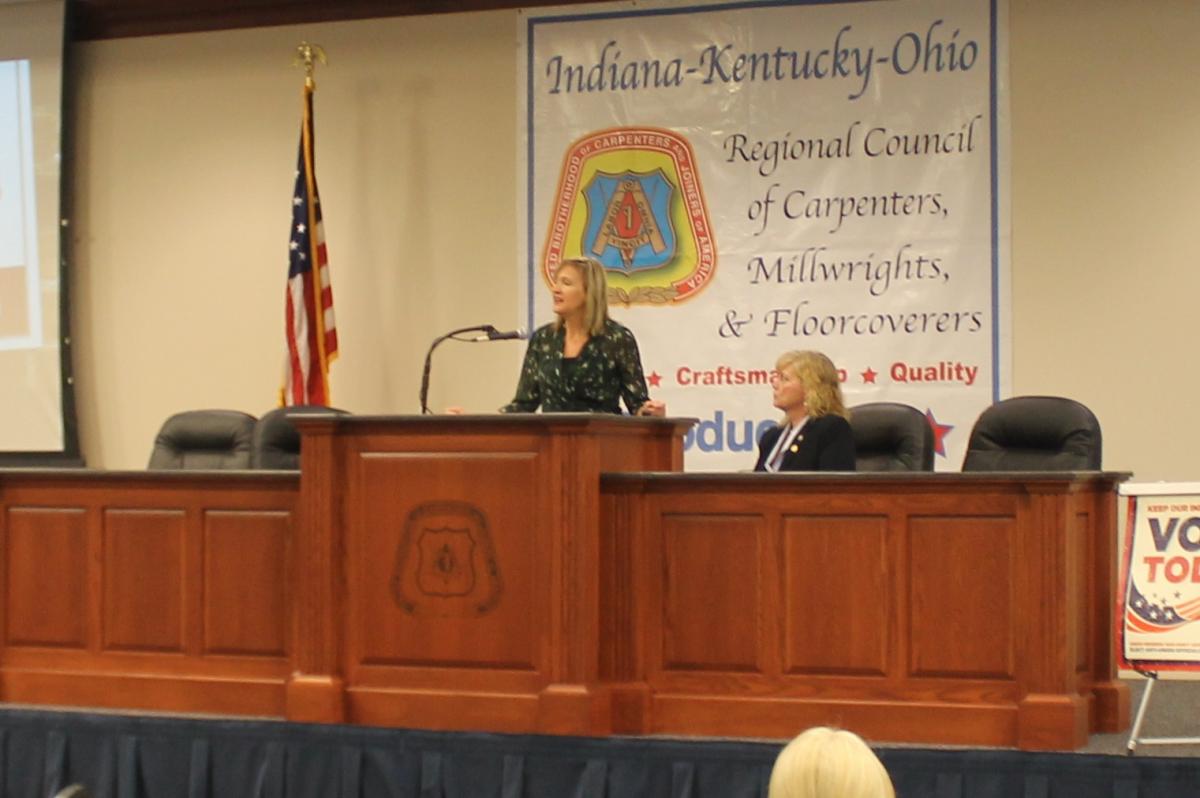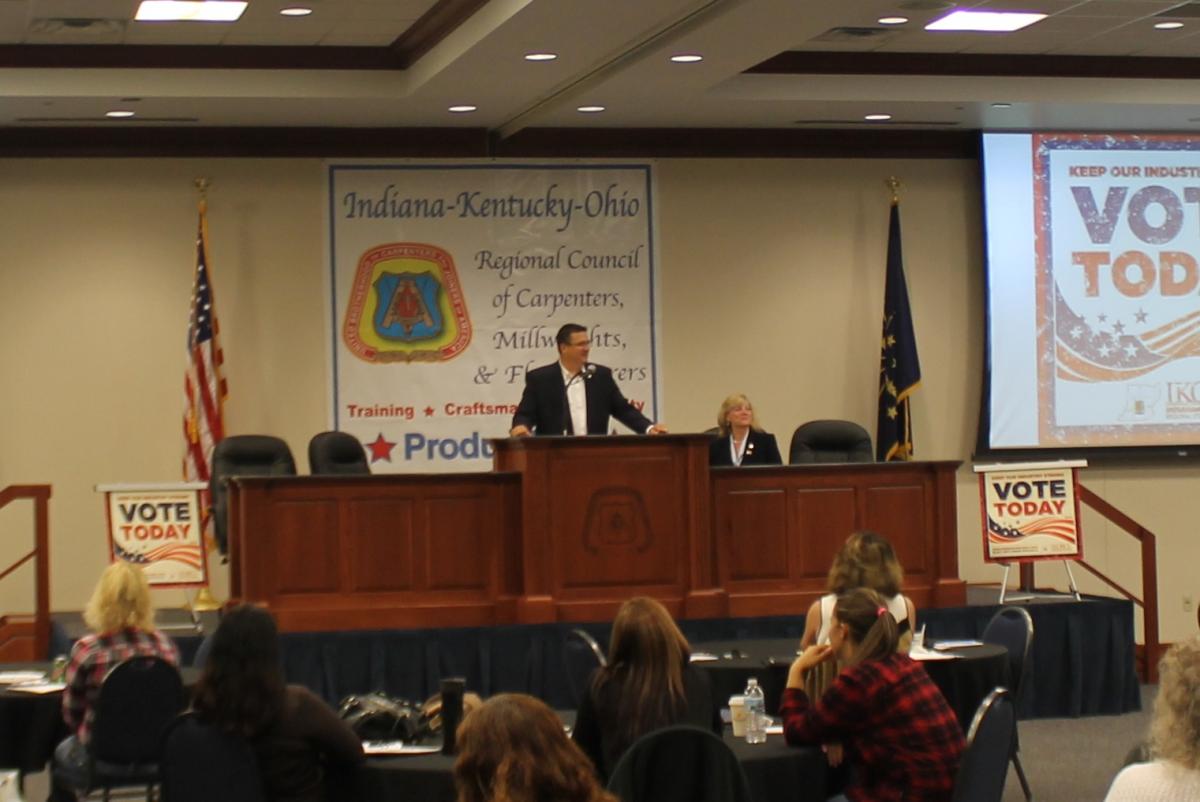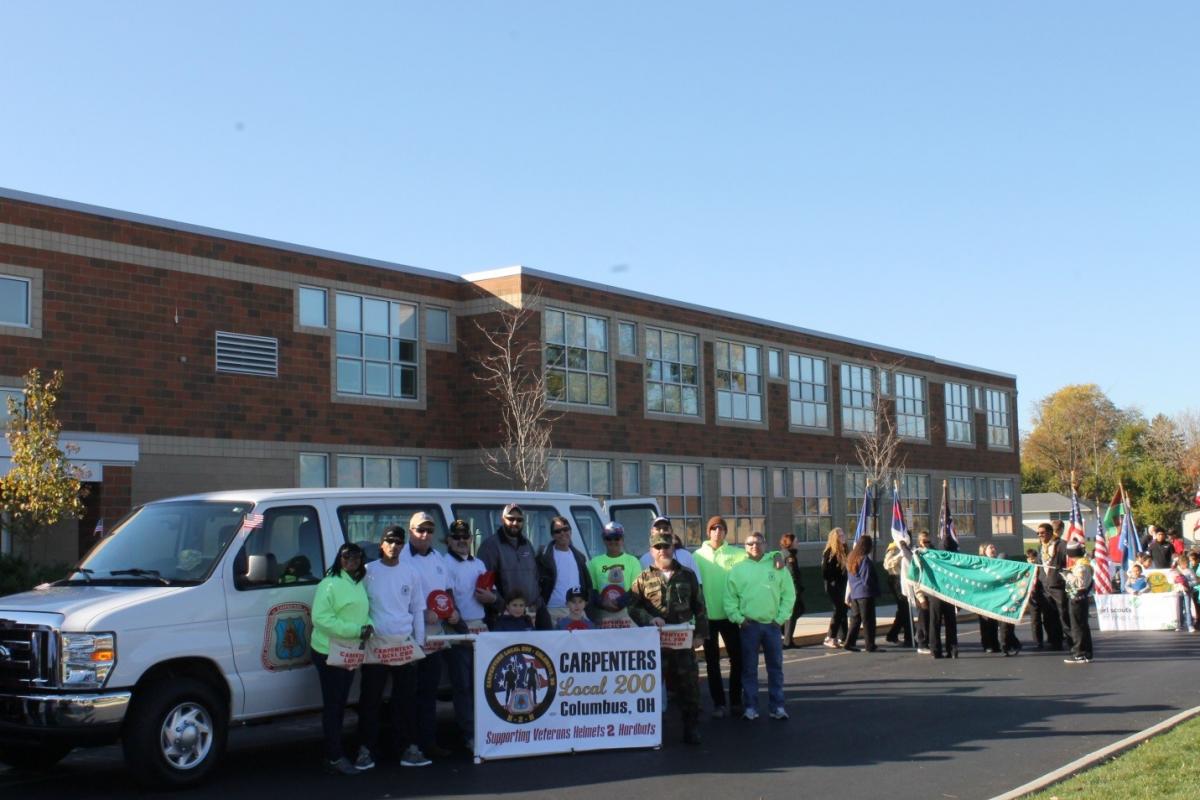By Travis Waldron and Dave Jaimeson
01/04/2017 03:58 pm ET
Kentucky Republicans opened 2017 by introducing a slate of anti-union bills in both chambers of the state legislature, including legislation that would make the state the last in the South to adopt a so-called “right-to-work” law.
Targeting unions has been a priority for the Kentucky GOP in past years, though Democratic control of the governor’s seat and state House kept right-to-work and other legislation from passing. But Gov. Matt Bevin (R) won election in 2015, and Republicans swept their way to their first majority in the state House in nearly a century in November, paving the way for an ambitious agenda with right-to-work at the top of the list.
The proposed right-to-work bills, the first of which a state House committee approved Wednesday after a brief hearing, would end requirements that employees pay fees to a union. These bills would gut Kentucky’s unions politically and hurt their workers, local labor officials said.
“First of all, when you pass right-to-work you’re racing to the bottom in terms of wages,” said Larry Clark, a retired union electrician and Louisville Democrat who served as speaker pro tempore in the Kentucky House before he stepped down in 2014. “Statistics show that there’s less per capita family income. Statistics show there’s less tax revenue because there’s less money spent.”
Under U.S. labor law, a union must represent all the employees in a workplace it has unionized, even those who may not want representation. Unions say it’s only fair that all the workers in the bargaining unit pay fees to the union to cover the costs of bargaining.
But right-to-work laws make such arrangements illegal, allowing workers to opt out of paying fees to a union that will nevertheless represent them ― a situation that unions derisively call “free riding.” Backers of right-to-work laws argue that no worker should be required to support a union, even if it bargains on his behalf.
By helping to erode union membership, right-to-work laws hurt unions financially and weaken them (and, by extension, Democrats) politically. Right-to-work laws used to be a hallmark of conservative states in the South and West, but they have spread rapidly in recent years, even in the industrial Midwest. Indiana, Michigan, Wisconsin and West Virginia have all gone right-to-work since 2012. West Virginia was the 26th state to pass such a law, marking a symbolic turning point for right-to-work proponents.
F. Vincent Vernuccio, the labor policy director at the Mackinac Center, a conservative think tank that supports right-to-work efforts, said he expects Kentucky Republicans to move quickly after their success in the November elections. Vernuccio said Missouri and New Hampshire could follow Kentucky this year.
“We may see up to 29 [states] before the spring,” Vernuccio said. “You’re definitely seeing a snowball effect, and more and more states are looking to give workers freedom.”
Kentucky, home to organized industrial plants for Ford and General Electric, among other companies, had held back the tide prior to last year’s elections. The state had nearly 200,000 union members in 2015, according to the Bureau of Labor Statistics. Counter to national trends, its share of workers represented by unions has risen in recent years. And ahead of a Wednesday committee hearing, critics of the legislation pointed to data which they said showed that Kentucky’s manufacturing sector had outperformed neighboring Indiana’s since Indiana approved a right-to-work law in 2012.
But now, union officials in Kentucky say the package of legislation introduced Tuesday amounts to an even stronger attack on unions than laws passed in other states.
The House right-to-work legislation, for instance, would prohibit public sector workers from striking, while similar legislation in the Senate would prevent private sector unions from devoting union dues to political causes like political action committees.
A separate bill in the House, meanwhile, would repeal Kentucky’s prevailing wage law that applies to state construction contracts. That bill also passed a House committee Wednesday afternoon.
“It’s devastating,” said Charlie Essex, the business manager and financial secretary for Local 369 of the International Brotherhood of Electrical Workers, based in Louisville. “It’s a blatant attack on union people.”
While right-to-work has been a contentious issue across states, leaders from Kentucky’s construction unions are just as concerned about the repeal of the prevailing wage laws, which apply to between 30 and 40 percent of union construction work in the state, Essex said.
Such laws require that companies bidding on public works projects pay certain minimum wages to the workers employed on the resulting jobs. Unions say the laws are crucial to prevent bidders from driving down wages in the local economy.
Republicans have in the past argued that prevailing wage laws lead to unnecessary cost increases under state contracts, a point that union leaders have disputed. In 2001, the Kentucky Legislative Research Commission examined a period when the state’s prevailing wage law did not apply in certain circumstances and “concluded that prevailing wage has no statistically significant effect on construction cost,” with some caveats.
Clark said that repealing the prevailing wage provisions ― which some studies have shown lead to higher-than-median wages for the Kentucky workers subject to them ― will have a detrimental effect on apprenticeship and job training programs that businesses and unions rely on. The combination of changes, labor leaders said, would also hurt workers’ wages.
“They’re cutting workers’ pay through right-to-work and prevailing wage in Kentucky. That’s what we’re doing,” said Bill Finn, state director of the Kentucky State Building and Construction Trades Council. “People voted for a change in this election, but they didn’t vote for this. They didn’t vote for pay cuts.”
More than 100 union members and activists gathered near the state Capitol on Wednesday, with plans to testify against the legislation in a last-ditch effort to stop it.



